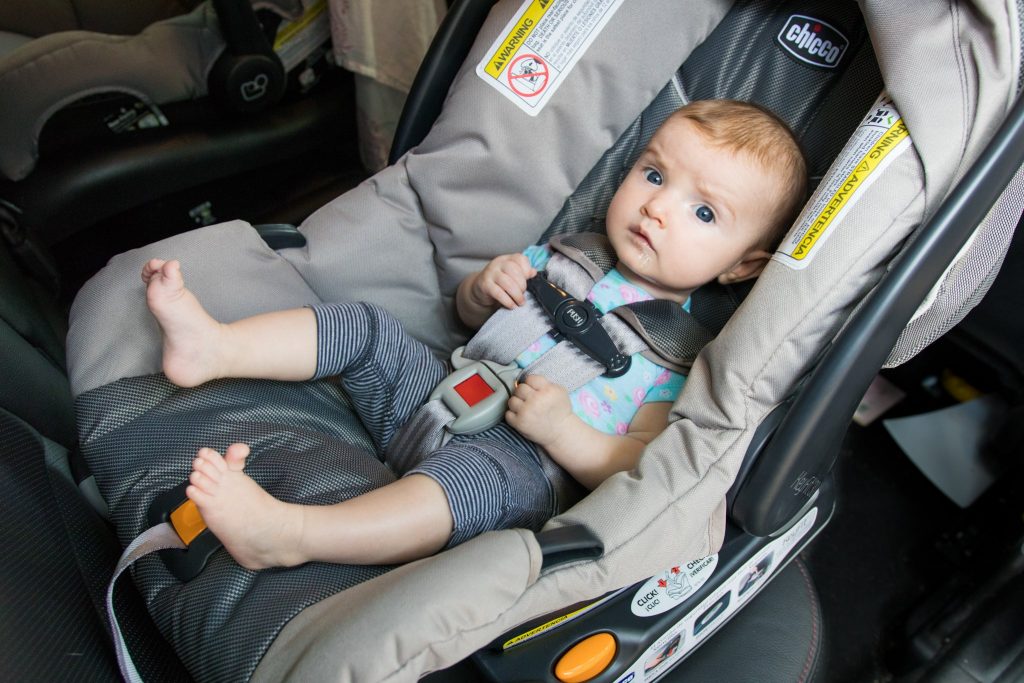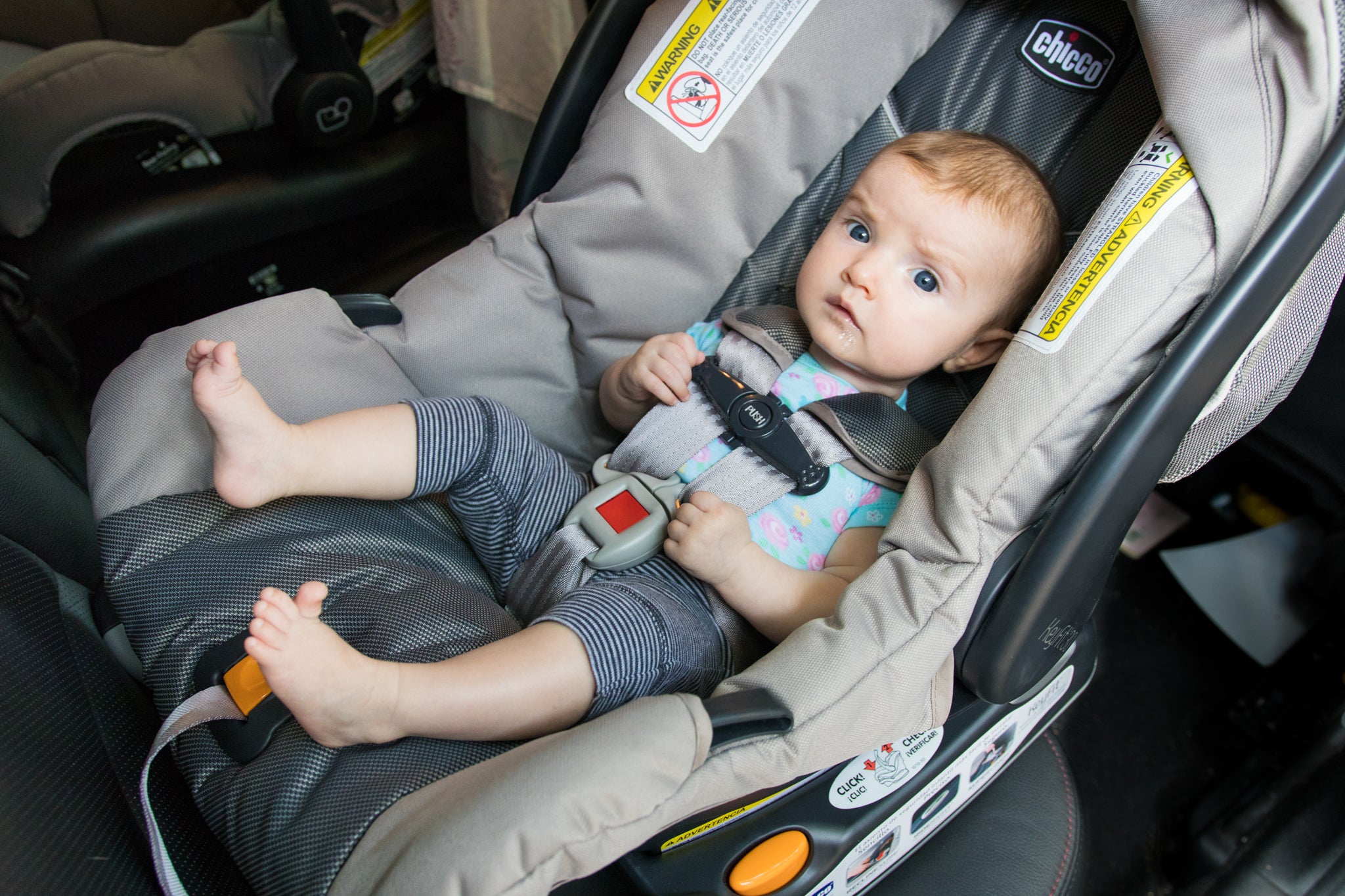Over the last several decades, it has been clearer that no items are made to last too long. The seats in the car aren’t immune either. Most parents are aware that car seats have expiration dates, but few understand why this is the case.
Parents are frequently concerned about car seat expiration dates. Manufacturers are being questioned about if they are only attempting to sell more kid safety seats. Naturally, parents want to keep their children safe and use the finest car seat practices. If you don’t like the car seat, don’t get rid of it. How long do infant car seats last? This will be the subject of this article.

How Long Do Infant Car Seats Last
Six years after the date of manufacture, most car seats are no longer safe to use. To ensure that your seat and its base are still in good working order after the expiration date has passed, check the expiry note on your seat and its base frequently.
The expiration date is usually printed on a sticker affixed to the seat’s bottom. The base of the seat is the same. Just flip the seat back and look on the back. On the other hand, some manufacturers include an expiration date on the cushion’s shell. Make sure it’s not on the back of the seat by removing the seat cushion. Ask your seat manufacturer for help if you can’t find the expiration date on your seat. Never put your child in a car seat without first making sure it is still safe.
Keep an eye on the age of the child safety seat
You can find the expiration date in the owner’s manual with your car seat. The information should also be printed on the car seat, molded into the body, or included on labels with other safety instructions. Car seats are given an expiration date to alert parents that the seat may be worn out or out of date due to advancements in safety standards and technological advances.
Never donate or lend out an old car seat that has passed its expiration date. The materials used in constructing a car seat can also impact how long it lasts. Some materials are better able to withstand a collision than others. When it comes to how long a car seat lasts, the design and installation method can also play a role. When inspecting a car seat for wear and tear, You should consider all of these factors.
Lifespan of infant car seat depends on age
All car seats are currently classified into one of six groups:
- Group 0+: infants from the time of birth to the age of 15 months.
- Group 0+/1 – birth weight up to 18 kilograms (around 4 years)
- 9 kilos (9 months) to 18 kilos, in group one (around 4 years)
- 9kg (9 months) to 36kg or 135cm (36kg) is the weight range for the first two groups (around 11-12 years)
- Adults who weigh 18 to 36 kilograms or 135cm are in Group 2/3 (around 11-12 years)
- Birth to 36 kilograms or 135 centimeters (around 11-12 years)
A Group 0+/1 car seat is not necessarily safer because it has a shorter life span than a Group 0+/1 car seat, even though some seats last longer. Each car seat model has a recommended service life from the manufacturer, as shown below.
Even if your child has reached the maximum weight limit for their group, if you’re using a car seat that satisfies the legal safety requirements, you can continue to use it as a safe car seat until then.
Where to Find the Expiration Date?
The date of manufacture must be displayed on the back of every car seat. It’s possible that searching along the seat’s edges, back, or even flipping the seat upside down to see the bottom will turn up the sticker. A car seat marked down because it was last year’s model has a shorter lifespan than the current year’s model.
An older model car seat might be good if your child will outgrow it quickly. Car seats can last for many years, but you may want to go with the most recent model if you plan to use it with your child or a sibling for many years. Avoiding buying used car seats, which may be nearing their expiration dates, is a good reason to do so. In addition, there’s the possibility that used seats are incomplete or that worn-out components aren’t in good condition.
Read more: How Long a Baby Can Sleep in a Bassinet
Reason for Infant Car Seat Expire
Car seats in the United States are not required by law to have an expiration date. Instead, car seat manufacturers use a set of general guidelines to make their decisions. Manufacturers put expiration dates on car seats for various reasons, none of which are purely commercial.
Technological advancement
Manufacturers of car seats constantly tweak their designs to improve their product’s performance. An older car seat passed down from a family member or a friend may be in excellent shape. However, it is unlikely to be equipped with the most recent life-saving innovations.
On the other hand, used car seats may not contain all the original components. If you’re unsure whether or not a component is present, consult the owner’s manual. You should not use the car seat until all damaged or missing parts have been replaced.
New requirements for quality
It’s essential to be aware of any car seat safety regulations changes. The product you bought may no longer comply with new regulations. Using a seat with an expiration date ensures you won’t be missing out on any important updates.
Materials degradation
Automobile seats are not designed to last a lifetime. Like many other things you buy, the materials in the car seat degrade in quality over time. The plastic in a car seat, for example, can become brittle after years of exposure to temperature extremes. A breakdown may not be immediately apparent to the naked eye, so the expiration date is critical.
Read More: How to Fold Baby Trend Stroller
Final Thoughts
Understanding how long do infant car seats last would help your child’s health. Your state’s car seat laws will help you keep your children safe in the backseat of your vehicle. Registering your car seats with the manufacturer is also good to keep you informed of any recalls or changes in safety regulations.








